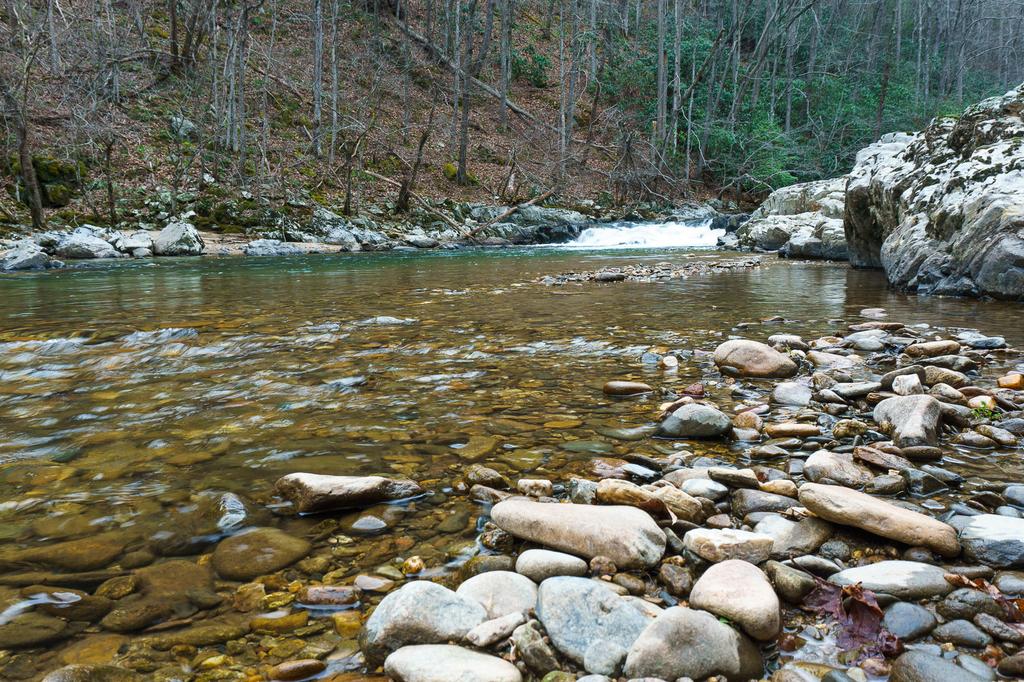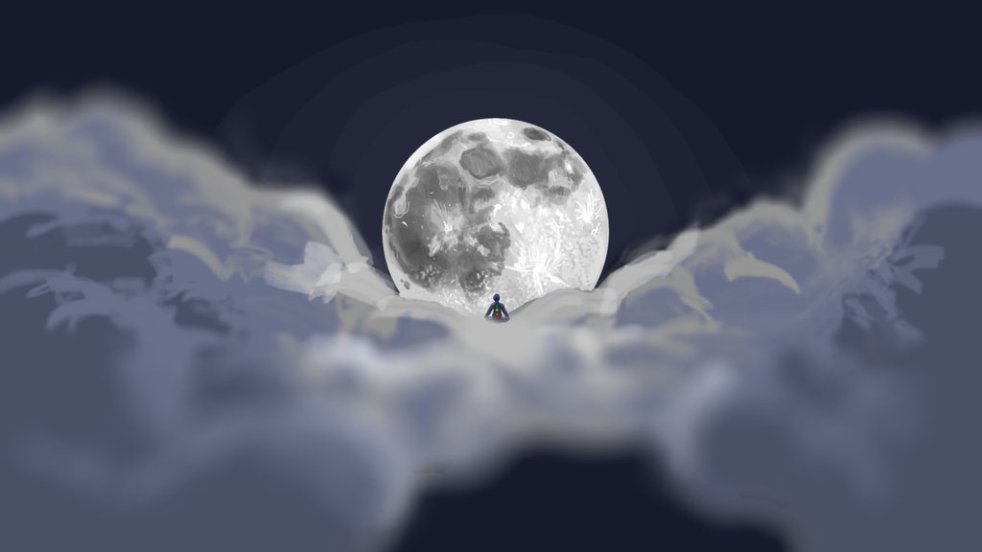Usually, an encounter with a wild animal, even in town, isn’t given a second thought. But encounters with animals in a meditative state (which essentially means a spontaneous state of inward stillness) ripple with meaning beyond words.
After sitting for an hour at the edge of town, with a smoggy view of the canyon and foothills, and the stones of the dry creek bed at my feet (the rains haven’t begun in California yet), the chatter and associations of thought give way to silence and responsiveness.
Since one doesn’t have a goal of quieting the mind, and effort and concentration have nothing to do with meditation, what compels one to sit for an hour?

Yesterday in the park alongside the creek that flows through town (which thankfully flows year around), a young fellow was frenetically piling stones on stones about 200 meters downstream. Shirtless in the last hour of sunlight on an unseasonably warm day, his energy was prodigious.
It was as if he was racing against the end of summer, which hangs on even as the leaves begin to turn in California, until the rains return (hopefully) in a couple weeks. There’s no debate about climate change in this state, as the dry season gets longer and hotter every year.
At first the plunk and thud of rocks hitting rocks in the water was annoying, but watching my reactions, the sound became simply factual. Then I was curious. Why do people find it so hard to sit still?
Even after decades of meditating in nature, I sometimes feel restless, with an itch to do something, though I don’t get the urge to pile rocks on each other and build a makeshift dam like some human beaver.
Listening without judgment to the young man wasting his energy and time piling stones in the stream, I saw that we’re all prisoners laboring in the quarry of thought. It’s just that a few of us realize it, and are disturbed by the fact.
Meditation is freedom from this unseen prison, at least for some timeless interval.
It isn’t a goal of the mind but a drive of the heart.
One doesn’t think, “I must focus on my breath, and on quieting the mind;” one simply enjoys watching the play of light and shadow on the water and leaves, and delights in hearing the rippling current, and the sounds of the jays, hawks and ducks.
Even the sounds that humans make are interesting and enjoyable to listen to—as long as it isn’t an infernal leaf blower or people fighting.
Today, taking the loop back on the bike from the bone-dry creek along the edge of town, an eagle took off from the top of a lamp pole as I approached, spreading its massive wings. I squeezed the breaks and slowed to a crawl. The eagle circled around me, shocking the mind and heart with its grandeur.
Meditation is not a positive movement, but a negational one. It springs from passive watchfulness, which ends the observer, the ancient root of psychological separation.
It deepens with attention gathering unseen, and dissolving the dense ‘me’ that forms the gravitational center of thought and from which ‘my thoughts’ seem to arise. There are just conditioned thoughts; there is no ‘me’ in actuality.
Allowing awareness to grow quicker than thought, the mind falls silent, and time, which is the continuity of thought, ceases.

There is no time in nature; there’s only unfolding and ending, death and birth. That movement is within one when thought folds its wings and is completely silent within one.
As meditation deepens, one unexpectedly leaves the stream of the known and enters the house of death, which, as strange as it may sound, is synonymous with creation, love and perpetual beginning.
Make no effort to meditate, and follow no system, method or technique. Simply watch every thought and emotion as they arise, like you watch leaves passing by on a stream. The very act of passively watching quickens awareness, gathers attention, and ends the flow of detritus, which is the past.
Each person has to do his or her own inner spadework. No one can do it for us.
Solitude and sociality rightly exist in balance, different for each person.
Solitude is primary however, since all that is true and good flows from it, not from the group, much less the herd or the mob.
Martin LeFevre
The post The Resting Space Between Thoughts first appeared on The Costa Rican Times.
No comments:
Post a Comment